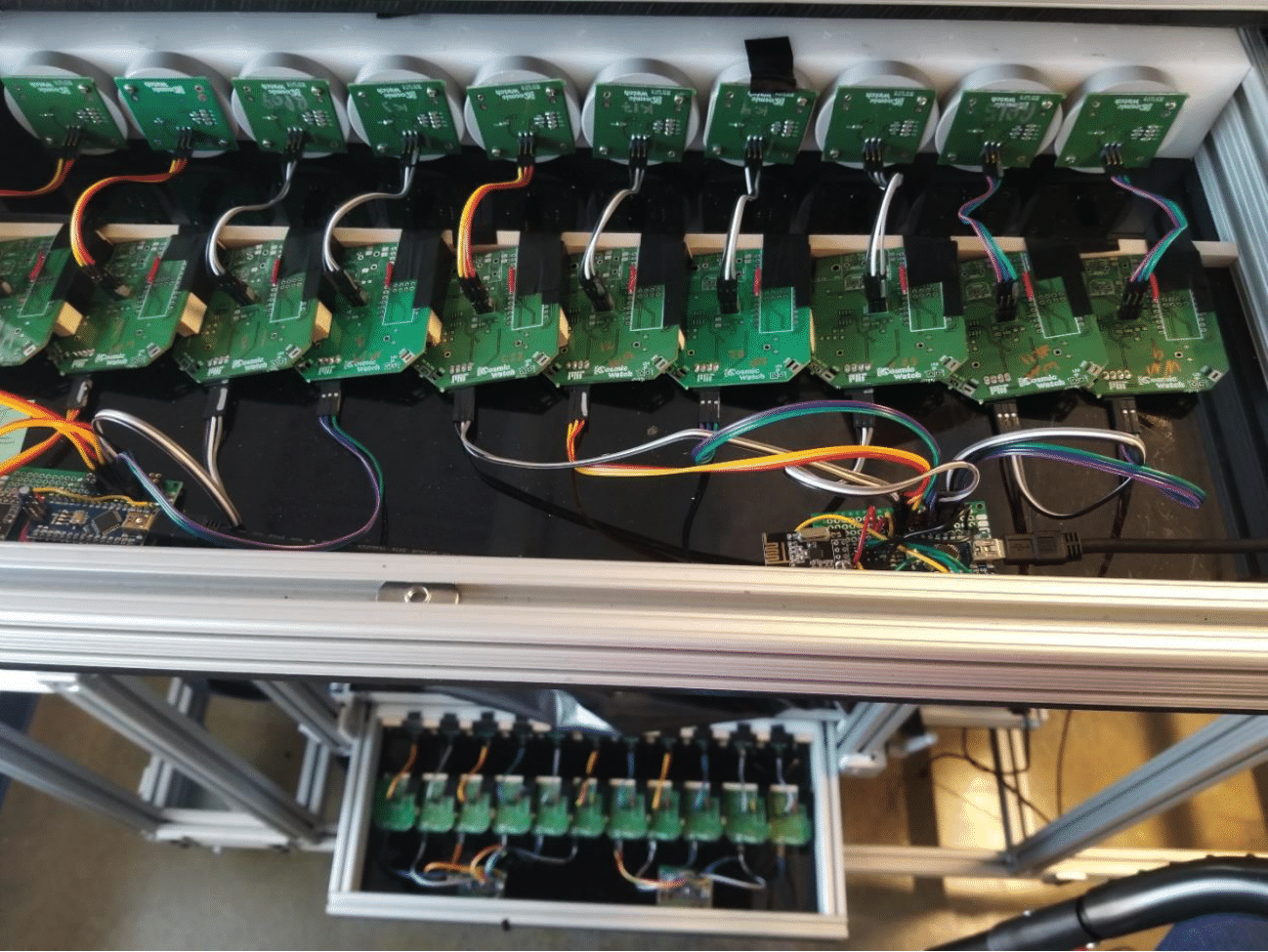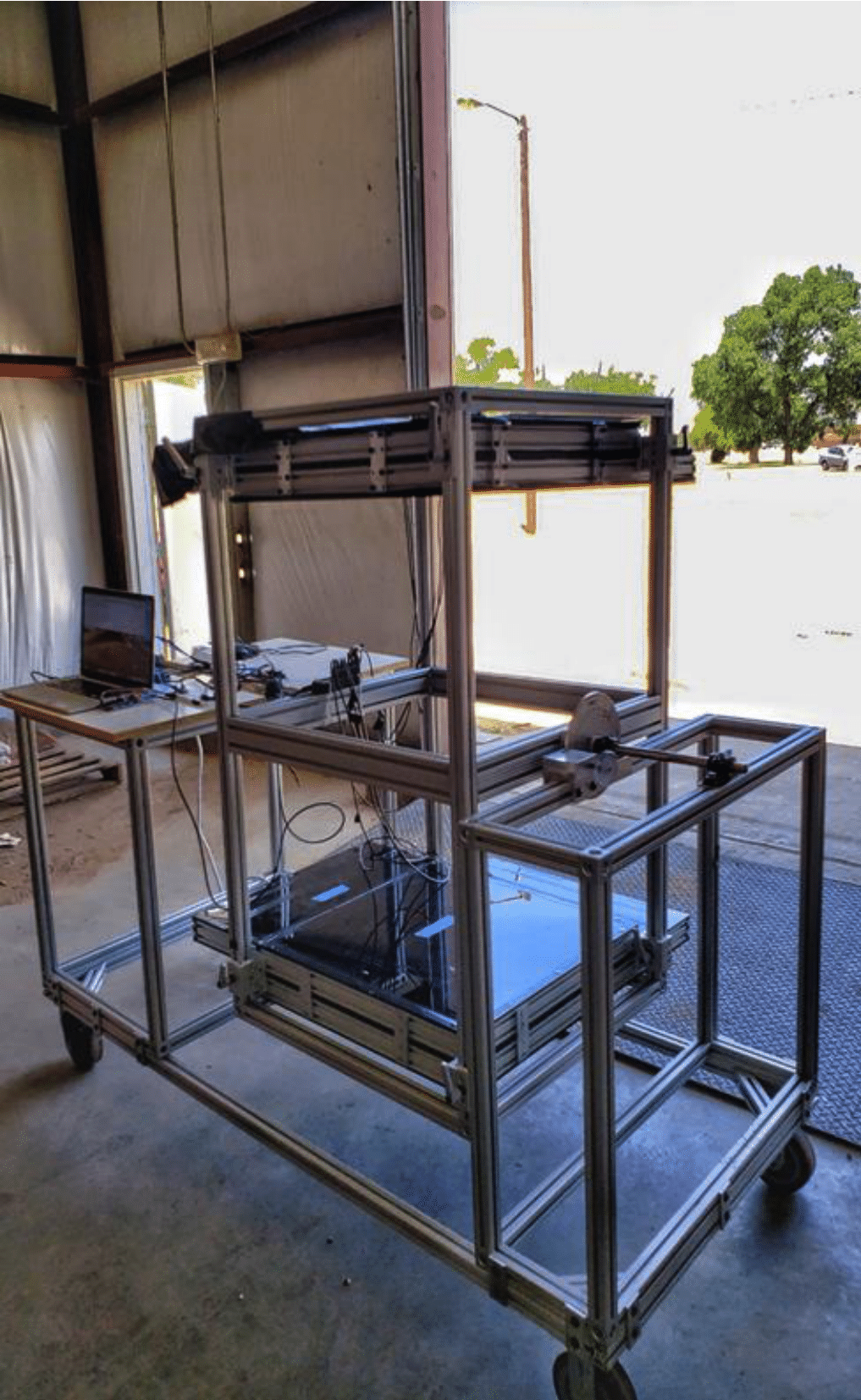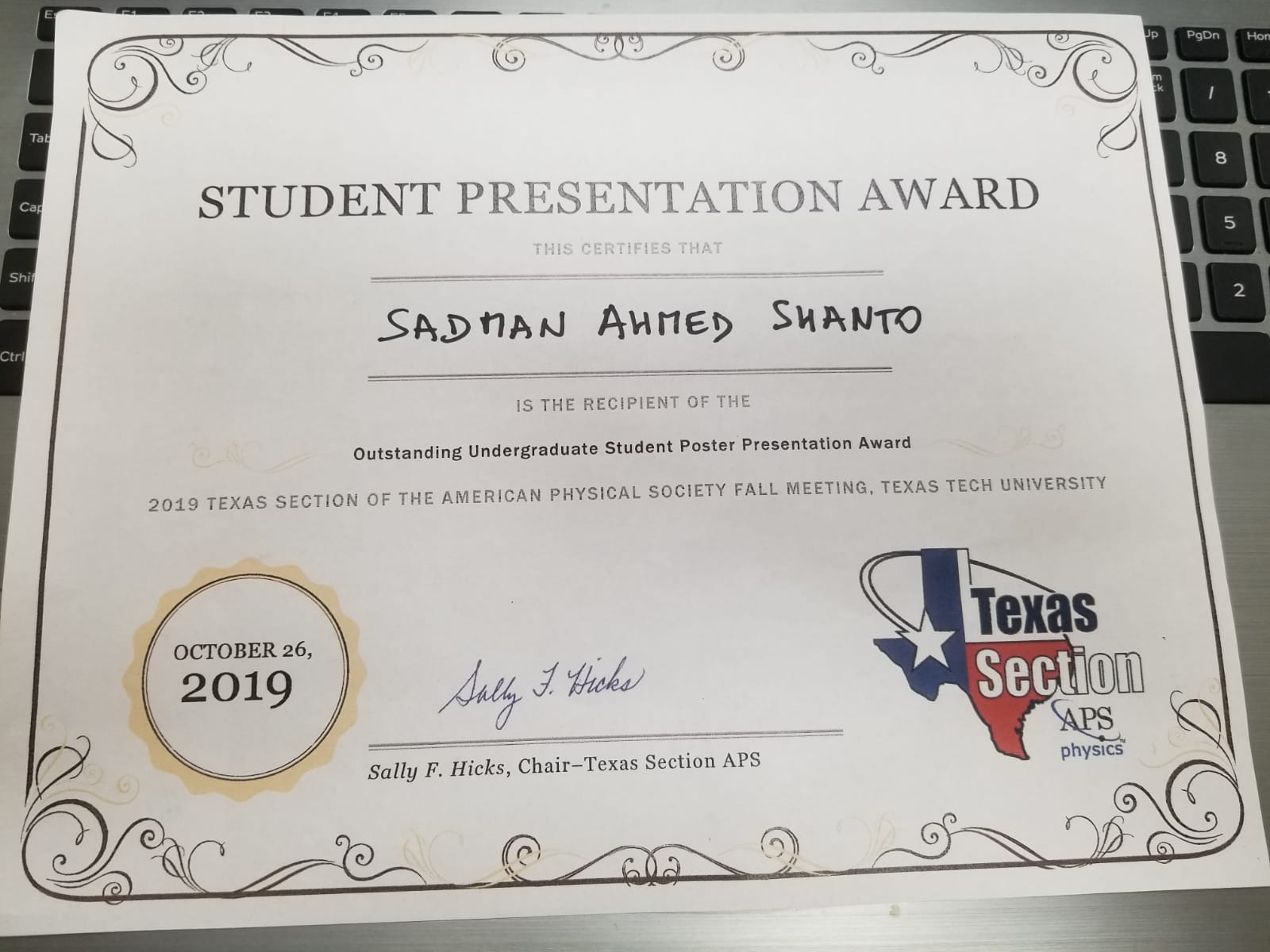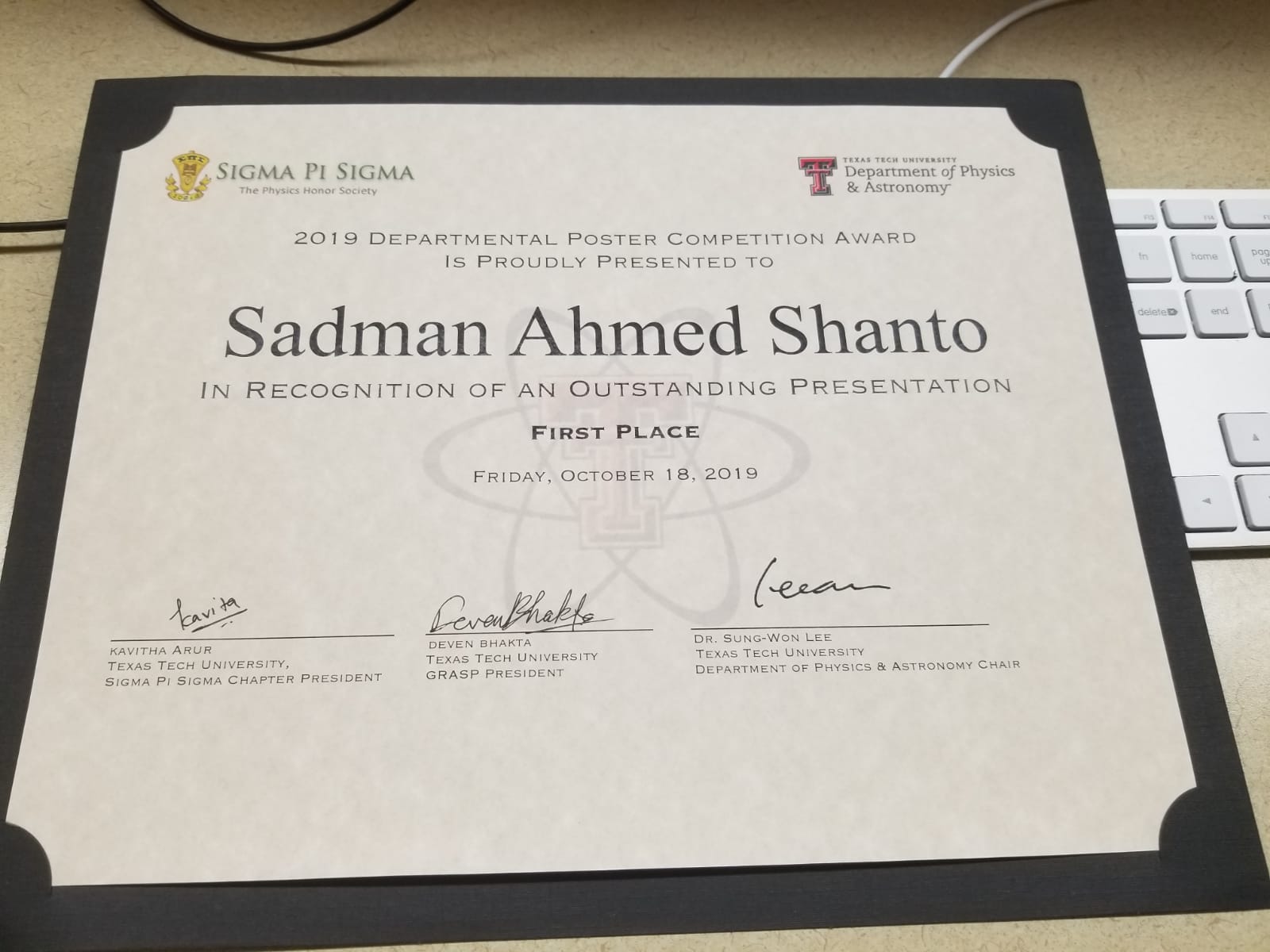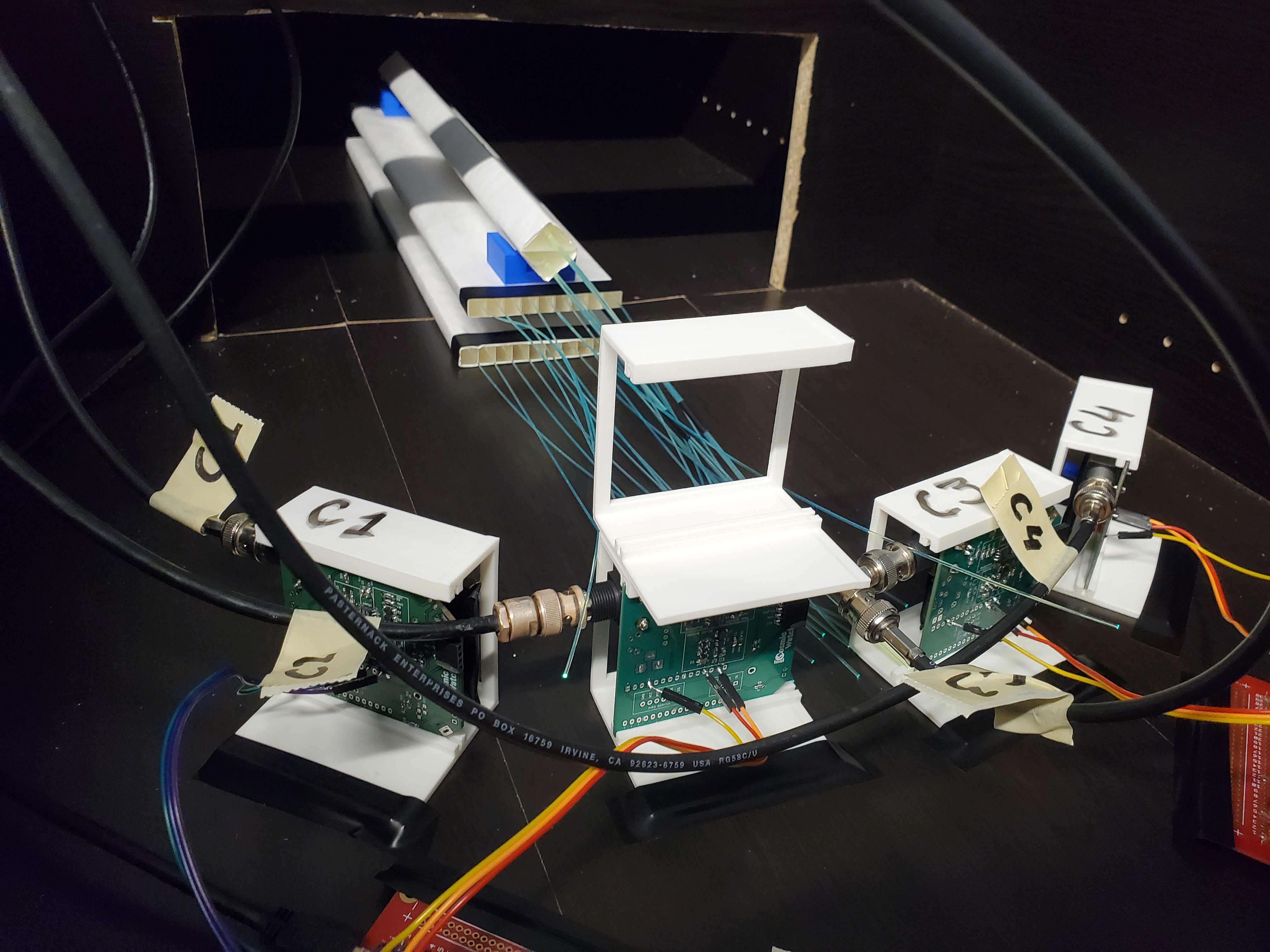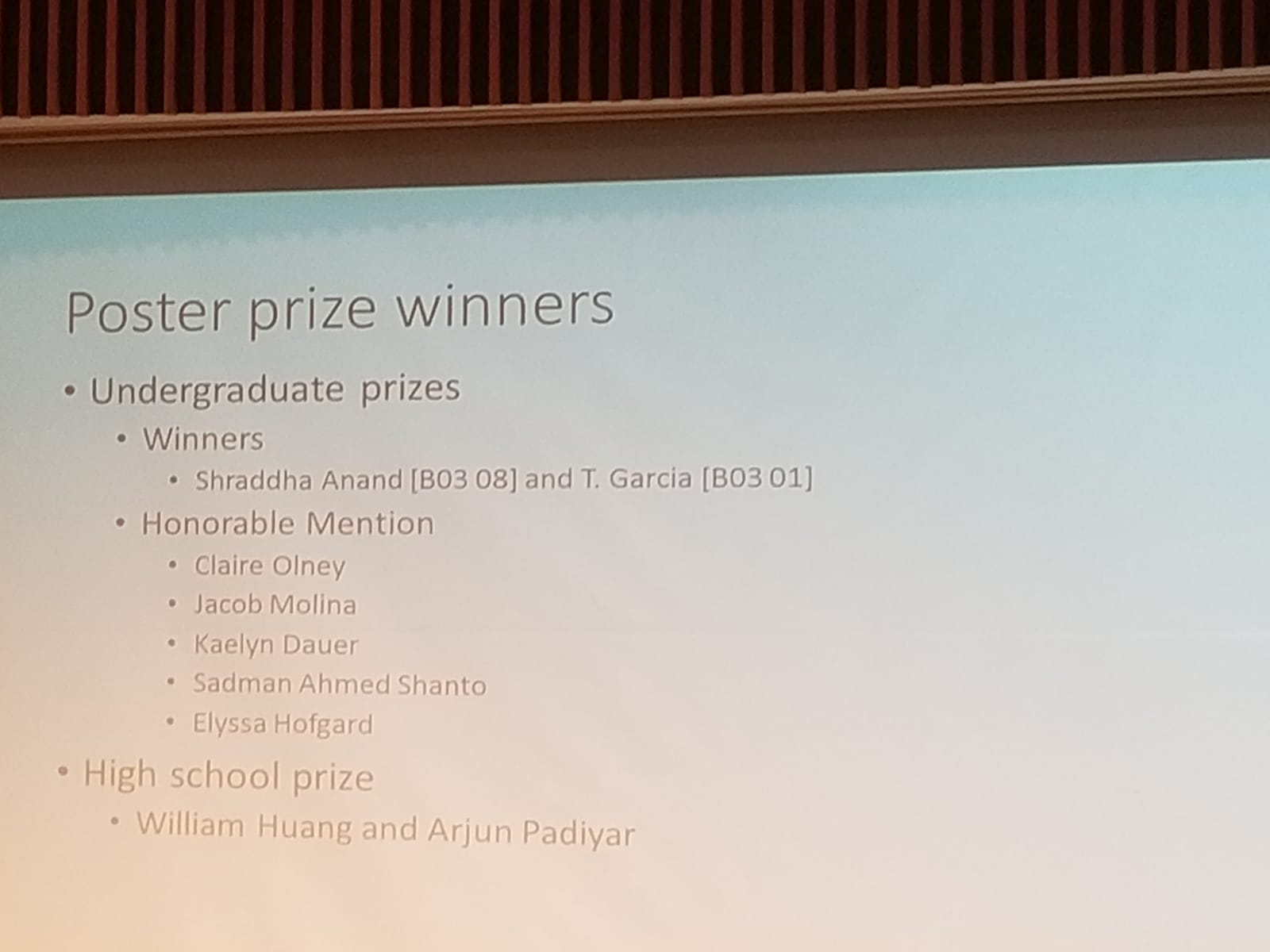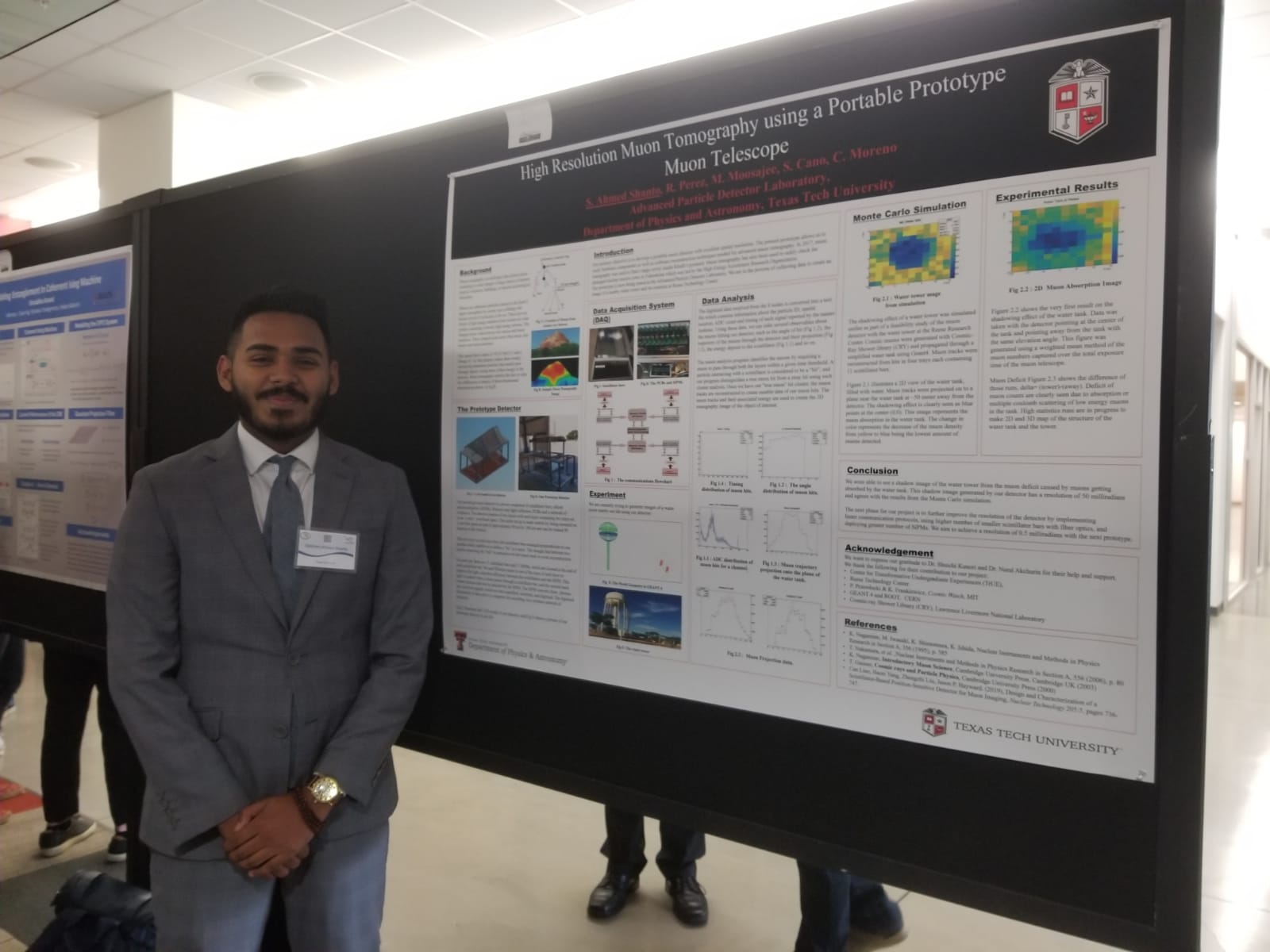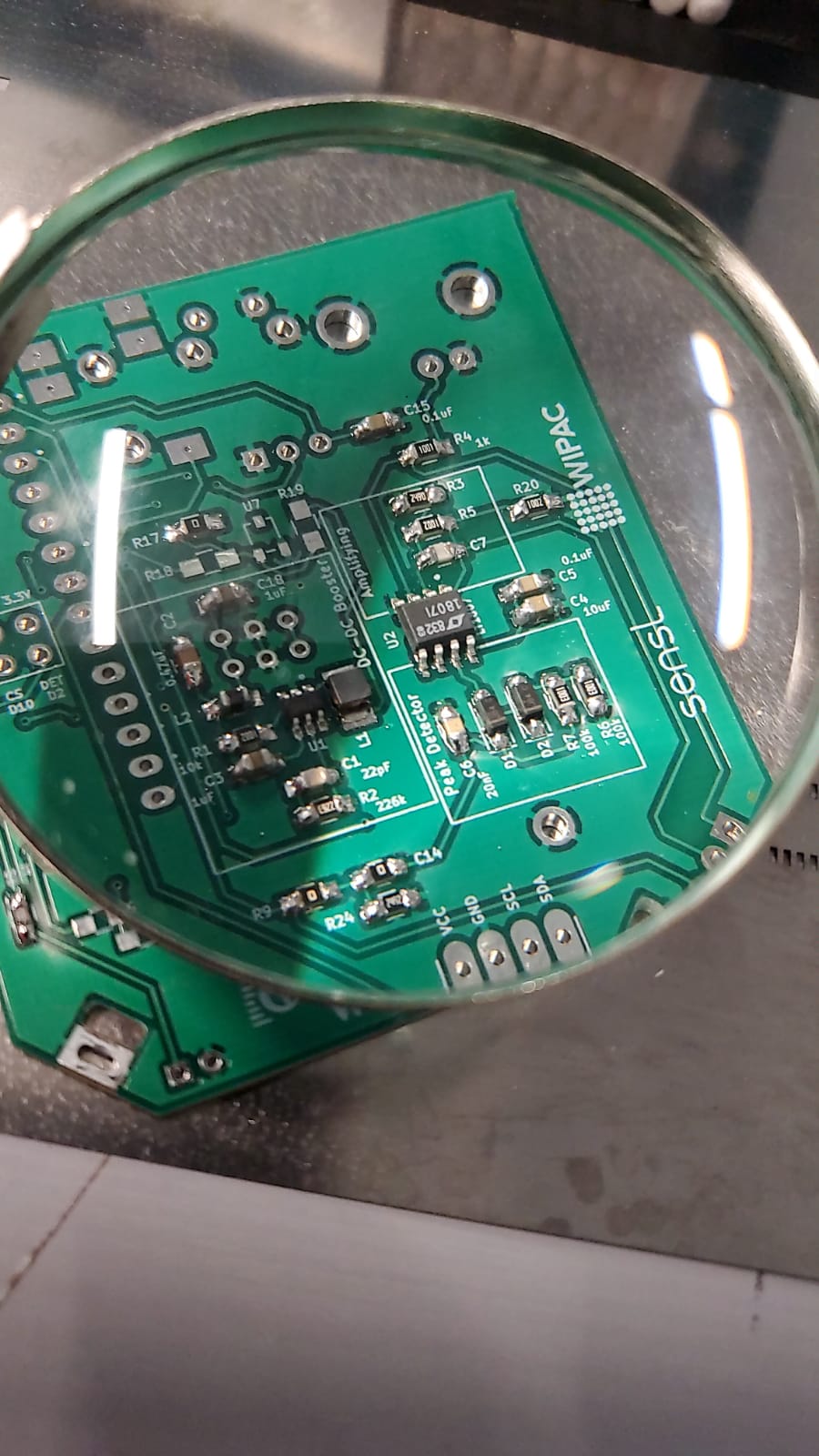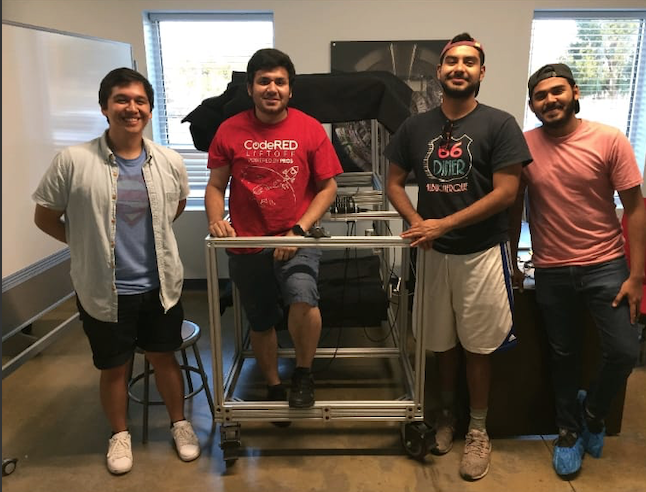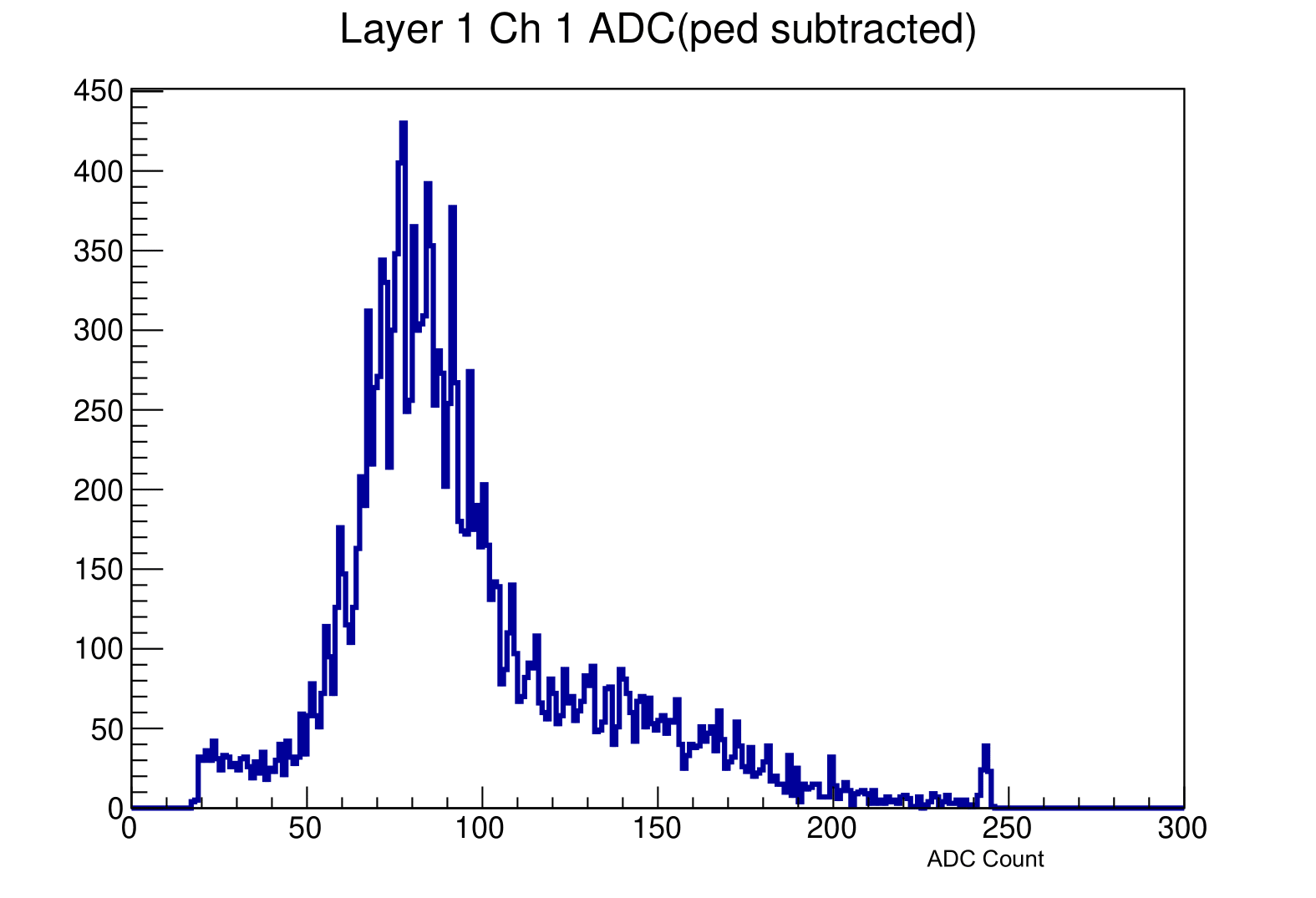Advanced Particle Detector Laboratory
A quick look into my personal involvement with developing some core functionalities at the APD Lab
Muon Tomography
Advisors: Shuichi Kunori, PhD and Nural Akchurin, PhD
Muons are elementary particles able to penetrate deep into structures, allowing us to image through very dense material. The muons we interact with are created in the Earth’s upper atmosphere from cosmic rays colliding with the nuclei of air molecules. These high-energy collisions result in pions, which often decay into muons and muon neutrinos. The muon flux reaching the Earth’s surface is about 10,000 muons per minute per square meter, making them the most abundant cosmic ray particle at sea level. These charged particles lose energy mostly through inelastic collisions in materials. Many of these collisions can take place per given path length, causing substantial energy loss. The energy loss per unit length (-dE/dx) is generally given by the Bethe-Bloch formula3 and is used to describe the density-dependent energy loss in materials. Muon tomography is a technique that uses this fact and the measured muon flux to reconstruct images. Muon tomography has been used to image large objects such as volcanoes, buildings, and ancient archaeological structures for more than 50 years. In his pioneering work, Alvarez searched for hidden structures in an Egyptian pyramid in 1970, thus showing the noninvasive feature of muon tomography and its applications.
The goal of this project is to develop a portable muon telescope that is capable of the best possible angular resolution that is physically attainable. Developing such a system requires an efficient muon detector, communication electronics, and excellent software for reconstructing the muon trajectory. Our first prototype telescope (Phase I) was built at the Advance Particle Detector Lab at Reese Technology Center in the summer of 2019 for training purposes.
See our latest work through this event display portal:
Event DisplayPublications:
- High-Resolution Muography Using a Prototype Portable Muon Telescope, Journal of Undergraduate Reports in Physics 30, 100006 (2020); https://doi.org/10.1063/10.0002046
Poster and Oral Presentations:
- Colloquium Presentation for Physics Department, Texas Tech University 2021
- Oral Presentation at 2021 Annual APS Conference
- Poster Presentation at 2020 Physics Department Poster Competition
- Poster Presentation at the Annual Texas Section of APS Conference 2020, University of Texas Arlington
- Oral Presentation at the Texas Tech University Annual Virtual Research Conference 2020 - view
- Poster Presentation at the Annual Texas Section of APS Conference 2019, Texas Tech University
- Poster Presentation at the Annual Far West Section of APS Conference 2019, Stanford University
- Poster Presentation at 2019 Physics Department Poster Competition
Awards and funding:
- TRUE Undergraduate Research (UR) Travel Funding Award 2019 ($1000)
- APS Student Travel Award 2019 ($1000)
- First Place at 2019 Physics Department Poster Competition ($300) - Shanto
- Outstanding Undergraduate Student Poster Presentation Award at Texas Section of APS Conference 2019 ($50)
- Honorable Mention for Undergraduate Student Poster Presentation at Far West Section of APS Conference 2019
